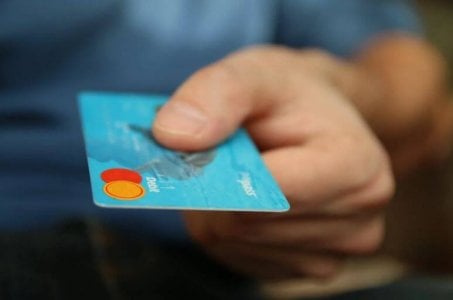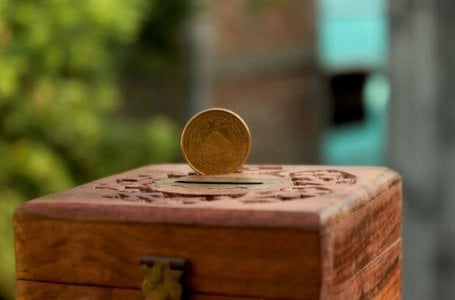Is Australia's cash hoarding problem getting out of control?
- Replies 11
These days, it seems like everything can be done with the click of a button or a tap on a screen. We can shop online, order food delivery and pay our bills without ever having to handle those pesky banknotes and coins.
Does that mean that cash will slowly disappear from the economy? Well, the answer is no. But lately, many Aussies seem to be stockpiling their cash instead of using it like they used to – which is also becoming a problem.
According to the Reserve Bank, right now, there are approximately 18 $100 notes and 38 $50 notes per person in Australia. And about $4,000 each when adding the smaller notes and coins.
But most people have none – which means some people are ‘cash hoarding’.
And the RBA has no idea where the cash is ‘hiding’.
Governor Phillip Lowe said at a dinner in Hobart earlier this month: ‘I don’t have my share of these [cash notes] or know many people who do.’
Fifteen years ago, cash was used in 69 per cent of transactions. In 2013, it was down to 47 per cent. In 2019, it lowered to 27 per cent. New data will come out next year, and experts have predicted that the use of cash in the economy has dropped even more.
Governor Lowe continued: ‘Our analysis is that most of these bank notes are being held as a store of value.’
This means that there’s around $100 billion worth of physical cash in the Australian economy, but it’s being used less and less. The inflation crisis is also affecting people’s cash on hand – specifically, how ‘safe’ the cash is at home.
Jason Catlow, the Director of the Aus Lock and Safe Company in Melbourne, said that ‘the prices people want to pay has drifted right back’.
He shared that before interest rates started rising and cost inflation soared, people were spending between $4,000 and $5,000 on home safes. Now, that number dropped between $1,250 to $2,500.
‘If the safe gets broken into, and if someone has $100,000 in a safe that was rated for $20,000, the insurance company might ask questions.’
During COVID, cash was something that people wanted to hoard.
‘The role of cash as a precautionary store of wealth in times of uncertainty has been evident during the COVID-19 pandemic, where there was a significant increase in demand for high-denomination banknotes,’ said the RBA back in 2020.
‘I thought that the attractiveness of holding banknotes as a store of value might decline, but there is little sign of that yet’, shared Governor Lowe.
In a previous article, we mentioned that although Australians are opting to use tap-and-go payments for their daily transactions since the pandemic hit, locals still treat physical cash as ‘gold’. You can read more about that here.

Do you like to hold onto your cash, members? Let us know what you think about this story in the comments below!
Does that mean that cash will slowly disappear from the economy? Well, the answer is no. But lately, many Aussies seem to be stockpiling their cash instead of using it like they used to – which is also becoming a problem.
According to the Reserve Bank, right now, there are approximately 18 $100 notes and 38 $50 notes per person in Australia. And about $4,000 each when adding the smaller notes and coins.
But most people have none – which means some people are ‘cash hoarding’.
And the RBA has no idea where the cash is ‘hiding’.
Governor Phillip Lowe said at a dinner in Hobart earlier this month: ‘I don’t have my share of these [cash notes] or know many people who do.’
Fifteen years ago, cash was used in 69 per cent of transactions. In 2013, it was down to 47 per cent. In 2019, it lowered to 27 per cent. New data will come out next year, and experts have predicted that the use of cash in the economy has dropped even more.
Governor Lowe continued: ‘Our analysis is that most of these bank notes are being held as a store of value.’
This means that there’s around $100 billion worth of physical cash in the Australian economy, but it’s being used less and less. The inflation crisis is also affecting people’s cash on hand – specifically, how ‘safe’ the cash is at home.
Jason Catlow, the Director of the Aus Lock and Safe Company in Melbourne, said that ‘the prices people want to pay has drifted right back’.
He shared that before interest rates started rising and cost inflation soared, people were spending between $4,000 and $5,000 on home safes. Now, that number dropped between $1,250 to $2,500.
‘If the safe gets broken into, and if someone has $100,000 in a safe that was rated for $20,000, the insurance company might ask questions.’
During COVID, cash was something that people wanted to hoard.
‘The role of cash as a precautionary store of wealth in times of uncertainty has been evident during the COVID-19 pandemic, where there was a significant increase in demand for high-denomination banknotes,’ said the RBA back in 2020.
‘I thought that the attractiveness of holding banknotes as a store of value might decline, but there is little sign of that yet’, shared Governor Lowe.
In a previous article, we mentioned that although Australians are opting to use tap-and-go payments for their daily transactions since the pandemic hit, locals still treat physical cash as ‘gold’. You can read more about that here.
Key Takeaways
- Australians are hoarding cash at worrying new levels, with the average person holding $4000 in cash.
- The Reserve Bank of Australia has no idea where this cash is being stored.
- The trend has been exacerbated by the COVID-19 pandemic, with people looking to cash as a safe store of value.









